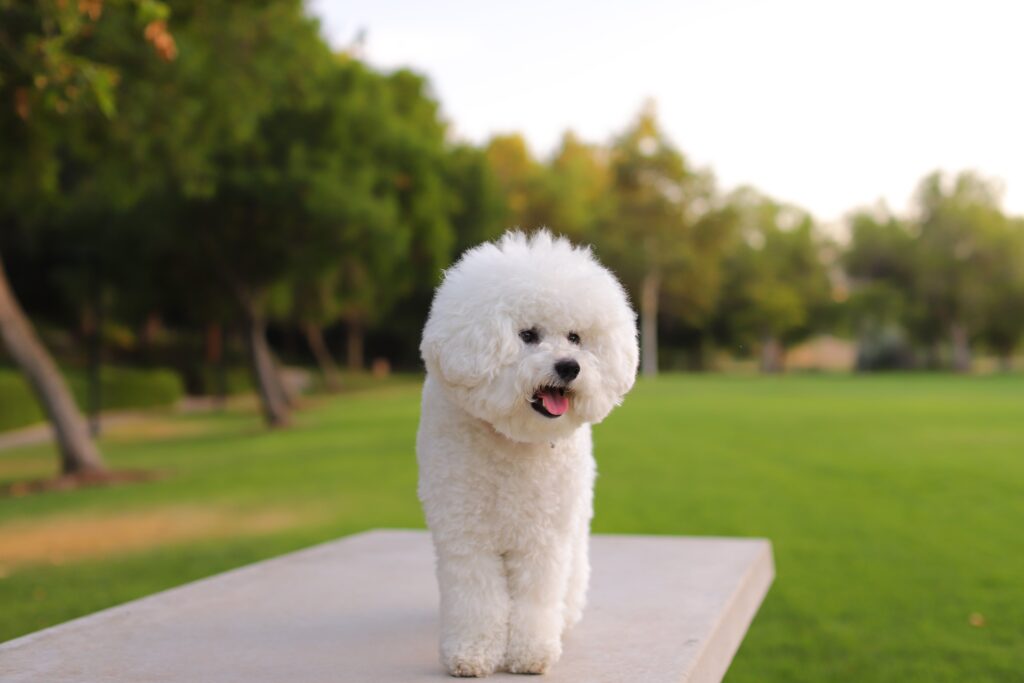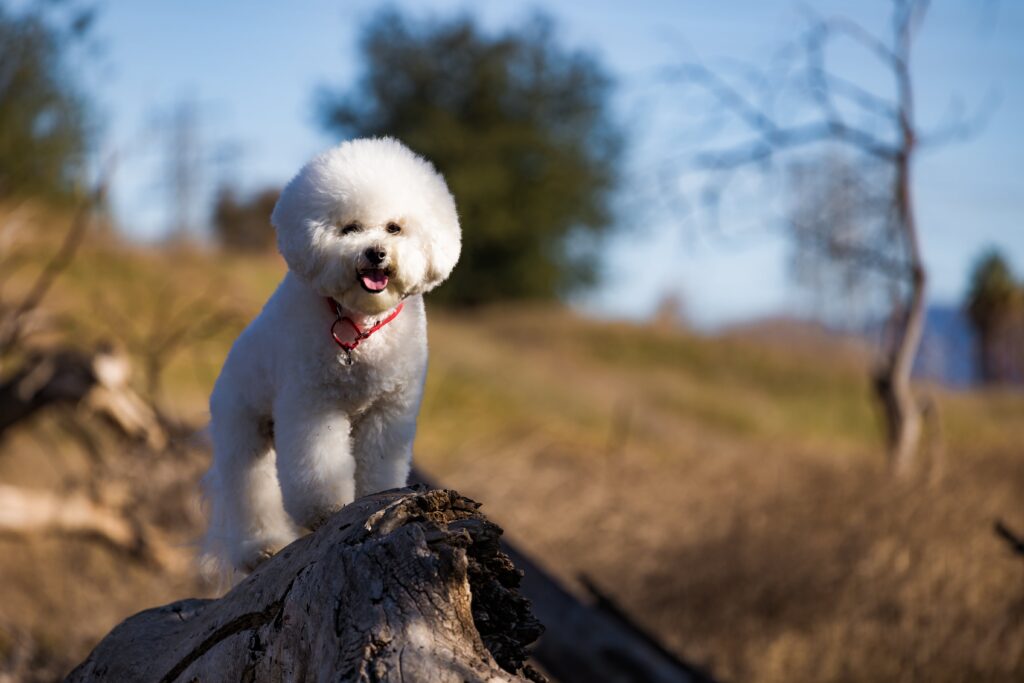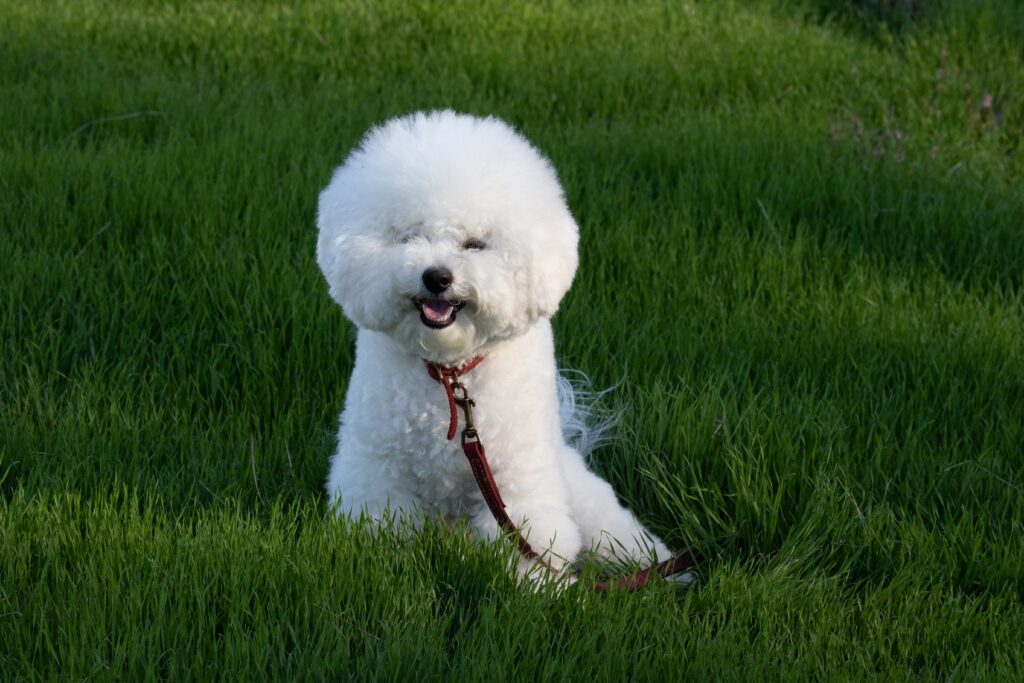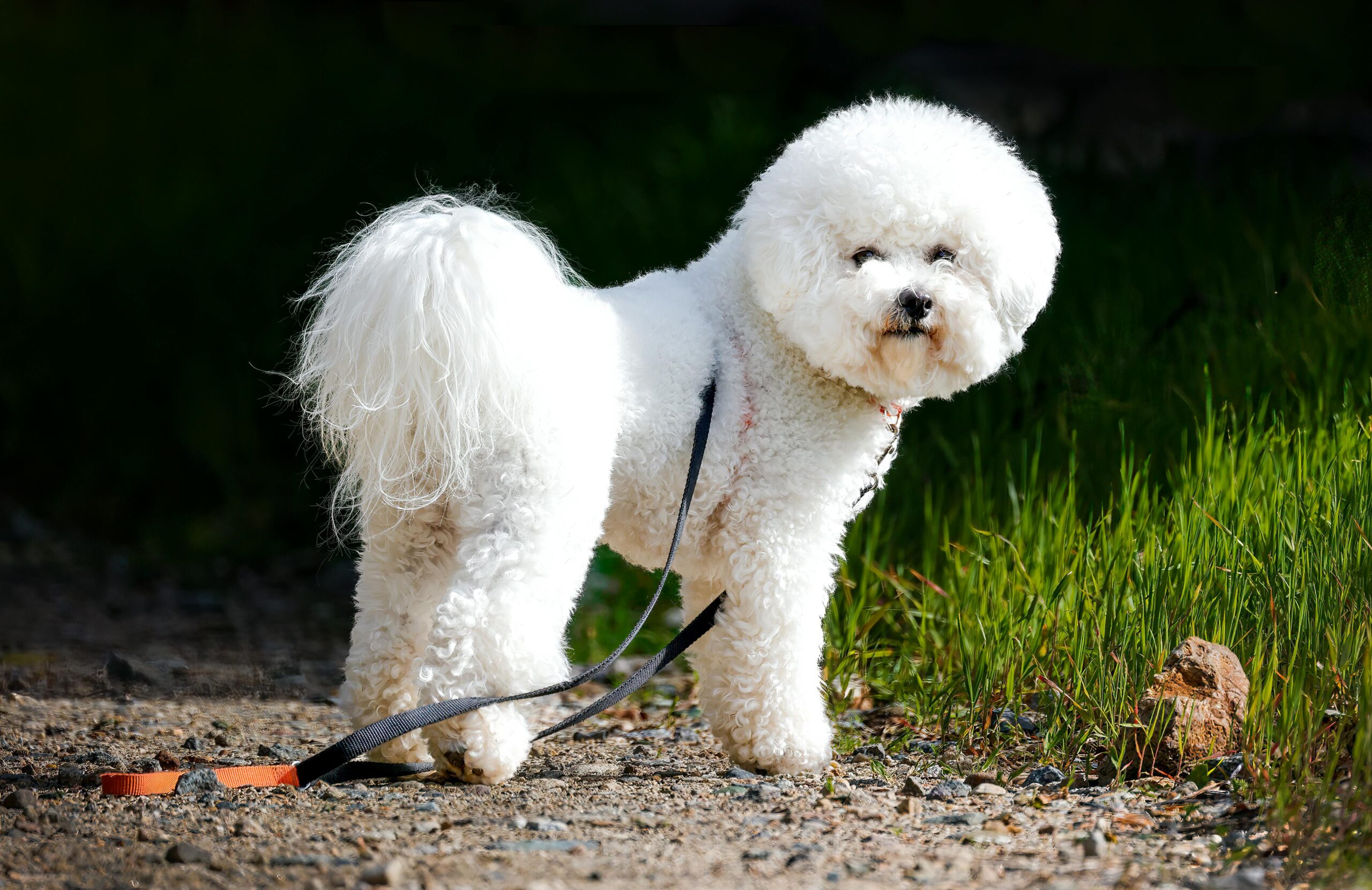
Being a new owner of a Bichon Frisé, it can be quite exciting yet overwhelming due to the responsibilities that come with it. It is essential to know about your Bichon Frisé's characteristics, nutritional needs, training, grooming, and common health issues. This blog post aims to help you understand your furry friend better and ensure they grow to be a healthy and happy Bichon Frisé.
List
Understanding the Bichon Frisé: Breed Characteristics
The Bichon Frisé, often described as a cheerful and sociable small breed, typically weighs between 10 and 20 pounds. This breed is known for its high energy levels and playful disposition, which can be attributed to their friendly and jovial nature. Bichon Frisés are characteristically affectionate, enjoying every bit of attention they can get, making them great companions for families, including those with children and other pets.
With an average lifespan of 14-15 years, the Bichon Frisé is a long-term commitment that is certainly rewarding. This breed is especially known for its fluffy, white coat, which not only adds to its charm but also serves a practical purpose. The hypoallergenic properties of their coat make them a suitable choice for those prone to allergies, contributing to their popularity.
The Bichon Frisé has an amicable personality that shines through in every interaction. Their expressive eyes and fluffy white coat are not the only features that set them apart. Their enthusiastic temperament, coupled with their zest for life, make them the life of the party wherever they go. However, it's essential to remember that they require ample daily exercise to keep them physically fit and mentally stimulated.
Overall, the Bichon Frisé is a delightful breed, offering companionship, joy, and a whole lot of fun. They are a vibrant addition to any family, bringing with them a world of love and happiness.

Nutritional Needs of a Bichon Frisé
Feeding your Bichon Frisé appropriately is paramount to their overall well-being. Given their petite stature, they don't require large portions of food. Nonetheless, quality should never be compromised for quantity. Their diet needs to be enriched with essential nutrients that cater to their size, age, and overall activity level.
High-quality commercial dog food, formulated specifically for smaller breeds, is a fitting choice for your Bichon Frisé. These types of food typically contain the right balance of protein, fat, and carbohydrates that your Bichon needs for their high energy levels. Remember, feeding your Bichon Frisé 2-3 small meals per day is better than one large meal as it keeps their metabolism active and prevents overeating.
While treats can be a valuable tool for training and an expression of love, they should be given sparingly. Overindulgence can lead to weight gain and dental problems. Always opt for healthy treats like dog-friendly fruits or vegetables, and steer clear from anything that's high in sugar or fat.
Hydration is equally as important as nutrition. Be sure to provide your Bichon Frisé with access to fresh water at all times, especially during the warmer months or after exercise.
Your Bichon Frisé's diet should not be static. As they age or if they have any special health needs, their dietary requirements may change. Regularly consult with your vet to ensure that their food intake remains appropriate and beneficial to their health.
Remember, every dog is unique and may have individual dietary needs. Understanding and catering to your Bichon Frisé's nutritional requirements can contribute significantly to their health, longevity, and overall happiness. It's more than just feeding them—it's about nourishing them.
Training Your Bichon Frisé
Bichon Frisés, due to their intelligent and outgoing nature, are quite trainable, particularly if you begin while they're still puppies. The key to successful training is positive reinforcement – a method that utilizes praise, affection, or small treats to reward good behavior. This breed thrives on attention and praise, and responding positively to their achievements will encourage them to repeat the desired behaviors.
Keep in mind that Bichon Frisés are sociable animals and need to be exposed to various environments, people, and other animals at an early stage. This early socialization helps to ensure they grow up to be friendly and well-adjusted dogs. During this phase, it’s important to remember that every interaction is a chance for training. Walking on a leash, behaving well around strangers or other dogs, and responding to basic commands are all part of their learning experience.
Although Bichon Frisés are known for their enthusiastic nature, training sessions should be kept short and engaging. Long, monotonous sessions may result in a bored and uninterested Bichon Frisé. Instead, opt for shorter, more frequent training periods filled with engaging activities and plenty of rewards. Incorporate games and puzzles that challenge their minds and cater to their playful nature.
Patience is crucial when training your Bichon Frisé. They are quick learners, but every dog will progress at their own pace. It's important not to rush the process or express frustration if your Bichon takes a bit longer to master a command. Instead, celebrate their small victories and continue to encourage their progress.
Consistency is equally vital. Ensure that all family members are on the same page regarding commands and rules. Mixed signals can confuse your Bichon Frisé and hinder their training progress. Regular training sessions and a consistent approach will help your Bichon grasp commands more quickly and behave more predictably.
Lastly, don't overlook the power of social training classes. These classes provide an excellent opportunity for your Bichon Frisé to interact with other dogs and people. They not only help with obedience training but also teach valuable social skills that your Bichon Frisé will carry throughout their life.
Keep in mind, training is not a one-time event but an ongoing process that extends throughout your Bichon Frisé's life. As they grow and develop, their training needs might change, and new situations may require additional training. With time, patience, and plenty of love, you'll be able to foster a strong bond with your Bichon Frisé while also guiding them to be a well-behaved and sociable dog.

Common Health Issues in Bichon Frisés
Bichon Frisés are generally robust and lively dogs, but like any breed, they are not exempt from certain health conditions. It's vital to be aware of these potential issues to ensure early detection and prompt treatment, which can significantly improve your Bichon Frisé's quality of life.
Алергії є поширеною проблемою у Бішон Фрізе, проявляючись у вигляді подразнення шкіри або проблем з травленням. Вони можуть бути спровоковані певними продуктами, деякими типами рослин або екологічними факторами, такими як пилові кліщі. Якщо ваш Бішон показує ознаки надмірного подряпання, почервоніння або незвичайного стільця, це може вказувати на алергічну реакцію. У таких випадках консультація з ветеринаром є вирішальною для ідентифікації причини та розробки відповідного плану лікування.
Dental disease can also afflict this breed, usually in the form of periodontal disease. Regular teeth cleaning is crucial to prevent tartar build-up and subsequent gum disease. Integrating dental hygiene into your Bichon's grooming routine from an early age can help maintain good oral health and prevent serious complications down the line.
Bichon Frisés are prone to developing bladder stones. These are crystalline formations in the urinary tract that can cause discomfort and potentially lead to urinary blockages. Feeding your Bichon a well-balanced diet and ensuring they have constant access to fresh water can help reduce the risk of stone formation.
Joint issues such as patellar luxation, where the kneecap dislocates or moves out of its normal position, are also seen in Bichon Frisés. This can lead to lameness or an abnormal gait. Regular exercise and maintaining an ideal weight can help alleviate the symptoms associated with this condition.
Eye conditions, including cataracts, can also be a concern. Cataracts can cause cloudiness in the eye lens, leading to impaired vision or, in severe cases, blindness. Regular eye check-ups can help spot these issues early, allowing for timely intervention.
Remember, regular visits to the vet for health checks and vaccinations are the best way to keep your Bichon Frisé in peak health. These visits not only aid in the early detection of potential issues but also provide opportunities to discuss preventive care measures. Being well-informed and proactive about your Bichon's health can go a long way in ensuring they lead a happy and healthy life.

Grooming Your Bichon Frisé
Maintaining your Bichon Frisé's fluffy, curly coat requires a consistent grooming routine. This breed has a double coat that easily mats and tangles if not properly cared for. To keep your Bichon Frisé's coat in top condition, regular brushing is essential. This not only ensures that their fur stays mat-free but also promotes healthier skin by distributing natural oils throughout the coat.
A routine bathing schedule for your Bichon Frisé should typically be around every 4 to 8 weeks. This interval ensures their coat stays clean and vibrant without stripping it of its essential oils. Always remember to use a gentle, dog-specific shampoo to preserve the health of their skin and coat.
Professional grooming every 6-8 weeks is highly recommended for your Bichon Frisé. This breed has a unique trim known as the "Bichon cut," which keeps their coat looking tidy and well-managed. Professional groomers are well versed in this specific trim and can ensure your dog's coat remains in the best shape possible.
Aside from coat maintenance, grooming your Bichon Frisé also involves taking care of their eyes, ears, and nails. Regularly cleaning their eyes can prevent any build-up and potential infections, while cleaning their ears can ward off ear infections that Bichons are prone to.
Bichon Frisé's nails should also be kept at an appropriate length. Overly long nails can make walking uncomfortable for your dog and may even lead to issues with their posture over time. Ideally, nails should be trimmed once a month, but this can vary depending on how fast your dog's nails grow. Always make sure to use a good quality nail clipper and be cautious not to cut into the quick, as this can cause pain and bleeding.
Regular grooming isn't just about aesthetics; it's also an opportunity to check your Bichon Frisé for any unusual skin conditions or parasites. While grooming, be attentive to any changes or abnormalities such as rashes, bumps, or signs of parasites like ticks or fleas. Promptly reporting any changes to your vet can help ensure early detection and treatment of potential issues.
In conclusion, grooming your Bichon Frisé involves more than just keeping their coat beautiful. It's an integral part of their overall health and well-being. It provides a chance to bond with your pet, while also giving you an opportunity to ensure they are healthy from top to tail. With proper grooming, your Bichon Frisé will not only look their best but also feel their best.